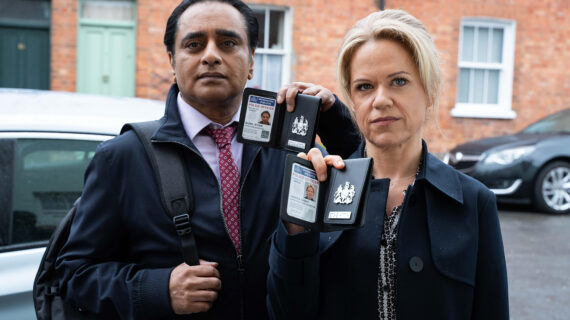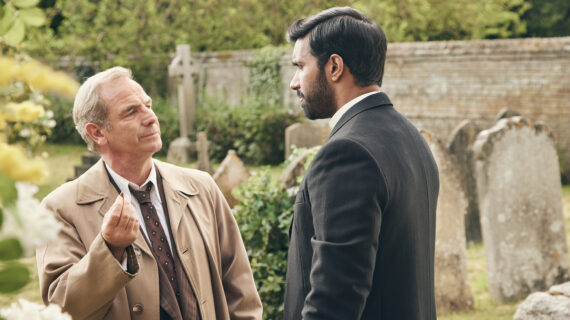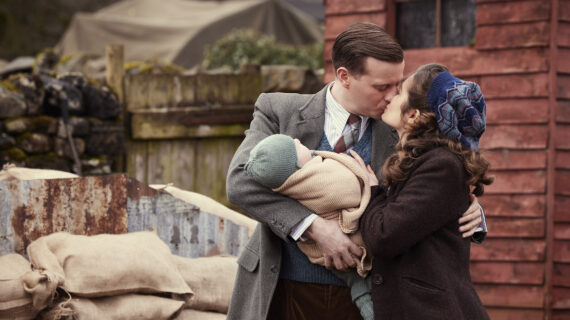Frederica Freyberg:
The concentric circles of trauma resulting from this week’s shooting are most acute at the center for victims and loved ones. Then for the school community, the city, the region, and the state as people try to reconcile the horrible violence. But how to do that? Here to help Erin Neill, a Madison psychotherapist specializing in trauma. And thanks very much for being here.
Erin Neill:
Thank you so much for having me.
Frederica Freyberg:
What are surviving victims and loved ones of those killed experiencing right now? And how do they ever move through that?
Erin Neill:
Yeah, I think it can be a little bit different for everyone. Like you said, the people that are closest to it are going to have the most trouble right now. I think just allowing all feelings, right. Like there’s probably grief, loss for the loss of their friends and classmates. There’s confusion, anger, lots of, lots of emotions. Trauma-wise, you know, sometimes kids have nightmares. They can like, kind of remember the scene that they saw if they were there. And yeah, just also any experience they had, like having to leave the classroom quickly, right and all of that. So just kind of, kind of maybe reliving that, thinking about it more and maybe worrying about what happens next or, you know, going back to school eventually.
Frederica Freyberg:
Yeah, for sure. So as to that school community, it’s small. It’s really tight knit. How does a group of people so close move through it themselves?
Erin Neill:
Yeah, I think actually that’s an advantage for them having that support of each other, right, that they already are such a community. They know each other. They lean on each other. So how do they move through it? Like, yeah, being there for each other, having memorials, things that make meaning out of the tragedy. And then the greater Madison community and Wisconsin community also wants to support them. You know, and so figuring out how to get that help to them too.
Frederica Freyberg:
So there is this kind of collective heartache for all of us. How are people to reconcile this in the midst of what should be a warm and loving holiday season?
Erin Neill:
That is a really good question. Yeah, I mean, I don’t know that there’s a good answer for that right now. I think, again, like I said, I want — I hope that people can let themselves feel how they feel, feel that grief. As humans, we don’t love to feel uncomfortable. We don’t love feeling grief, but it’s okay to feel that right now. And then, yeah, I think I see a lot of people really trying to figure out how do I make meaning, how do I honor the victims, how do I help the community? You know, whether it’s providing meals or church services, things like that that have happened and will continue.
Frederica Freyberg:
How should parents talk about this with their children, if at all?
Erin Neill:
I think you need to see where your child’s at. Obviously, parents should know their kids the best. So I wouldn’t — I would say kids, let kids lead the conversation. Let them bring it up. You know, check in with them. See how they’re doing. But yeah, I think then notice, right, like, is there sleep different? Are they eating different? Are they, you know, is their play different for younger kids, right? Are teenagers more withdrawn? When you notice that, ask them how are they doing? You know and then explain things in a developmentally appropriate way, right? It’s also okay to share your feelings, right? To say, like, this is scary. This is confusing. I do feel emotions, but parents need to keep control of their emotions too, right? Because if you feel if you’re out of control, if you’re like sobbing and weeping and things, that’s going to be hard for the kids. They might feel like they have to take care of you. So I think it’s adults taking care of themselves as well, leaning on a partner or friends, and then sharing appropriate amounts of emotion with kids so that they can help share calm with kids too, and help them feel safe again.
Frederica Freyberg:
How likely is it that the loss of a feeling of being safe at school, any school, touches families everywhere?
Erin Neill:
Yeah, I think that touches families everywhere. I think you can see that when you’re online and you know, I’m a parent, I have — most of my friends are parents. Like, we all this week have felt like, how do we drop our kids off at school the next day? How do we — yeah, so I think it reaches everybody that feeling of are we safe?
Frederica Freyberg:
What to do about that? Anything?
Erin Neill:
It’s tough. Yes. I think, you know, we have to, you know, contextualize it. It is a random event. And so that’s hard to say, like, this isn’t going to happen here, right, but it’s unlikely that it’s going to happen. And we do things to keep ourselves safe. We remind ourselves that we’re safe in this moment. You use things like grounding skills where you tap into your senses and say, “Okay, I’m here in this moment. I see, you know, a green tree, a green, you know, like kind of looking for things that are here in the present and knowing that you’re safe here.”
Frederica Freyberg:
All right. Erin Neill, thanks very much. Thanks for your help.
Erin Neill:
Thank you.
Search Episodes
Related Stories from PBS Wisconsin's Blog

Donate to sign up. Activate and sign in to Passport. It's that easy to help PBS Wisconsin serve your community through media that educates, inspires, and entertains.
Make your membership gift today
Only for new users: Activate Passport using your code or email address
Already a member?
Look up my account
Need some help? Go to FAQ or visit PBS Passport Help
Need help accessing PBS Wisconsin anywhere?

Online Access | Platform & Device Access | Cable or Satellite Access | Over-The-Air Access
Visit Access Guide
Need help accessing PBS Wisconsin anywhere?

Visit Our
Live TV Access Guide
Online AccessPlatform & Device Access
Cable or Satellite Access
Over-The-Air Access
Visit Access Guide
 Passport
Passport

















Follow Us